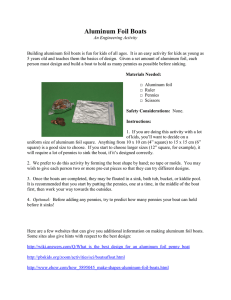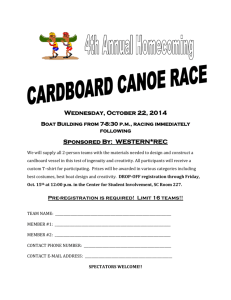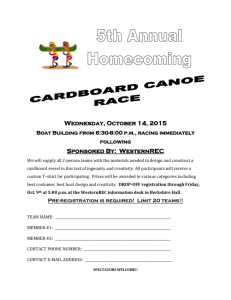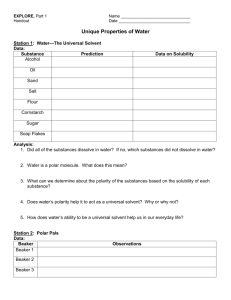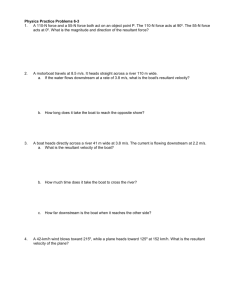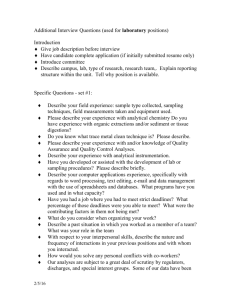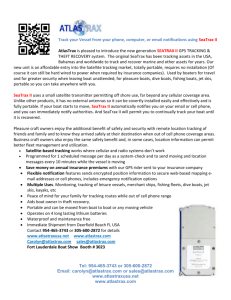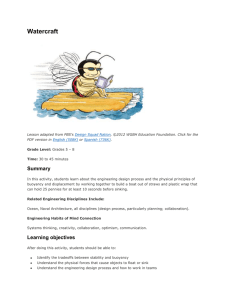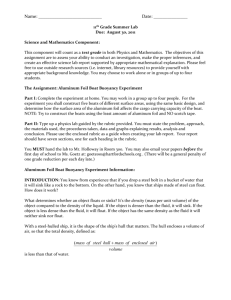Buoyancy Lab: Aluminum Foil Boat and Pennies
advertisement
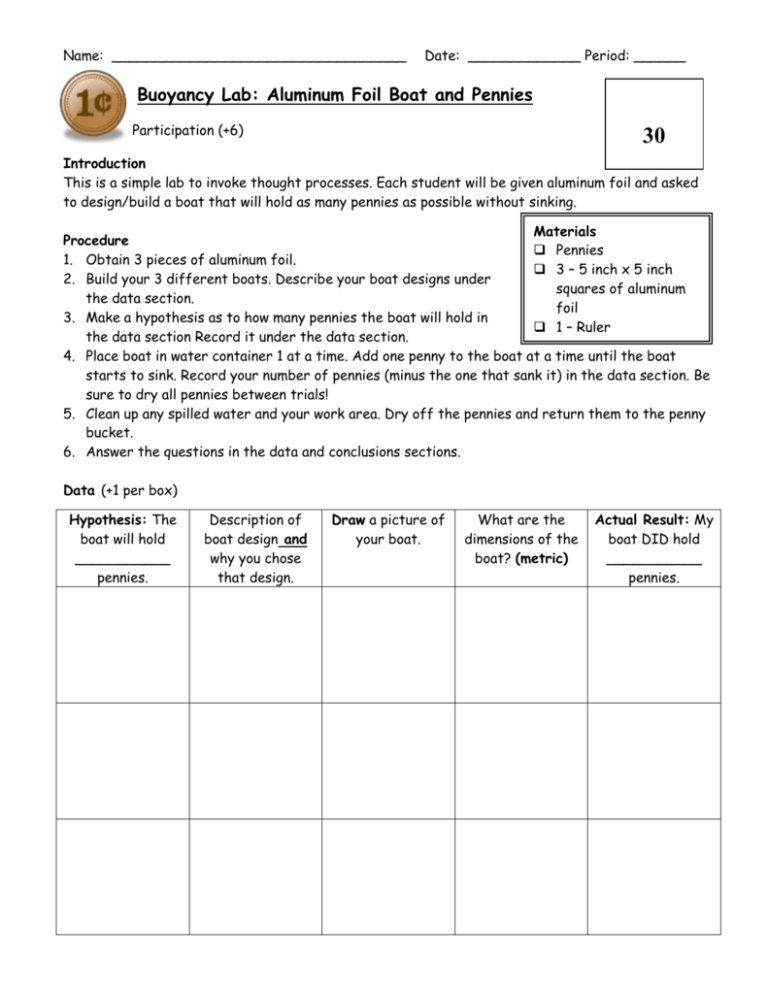
Name: __________________________________ Date: _____________ Period: ______ Buoyancy Lab: Aluminum Foil Boat and Pennies Participation (+6) 30 Introduction This is a simple lab to invoke thought processes. Each student will be given aluminum foil and asked to design/build a boat that will hold as many pennies as possible without sinking. Materials Procedure Pennies 1. Obtain 3 pieces of aluminum foil. 3 – 5 inch x 5 inch 2. Build your 3 different boats. Describe your boat designs under squares of aluminum the data section. foil 3. Make a hypothesis as to how many pennies the boat will hold in 1 – Ruler the data section Record it under the data section. 4. Place boat in water container 1 at a time. Add one penny to the boat at a time until the boat starts to sink. Record your number of pennies (minus the one that sank it) in the data section. Be sure to dry all pennies between trials! 5. Clean up any spilled water and your work area. Dry off the pennies and return them to the penny bucket. 6. Answer the questions in the data and conclusions sections. Data (+1 per box) Hypothesis: The boat will hold ___________ pennies. Description of boat design and why you chose that design. Draw a picture of your boat. What are the dimensions of the boat? (metric) Actual Result: My boat DID hold ___________ pennies. Name: __________________________________ Date: _____________ Period: ______ Conclusion 1. The quantity of pennies that your boat will carry before it sunk is _______________ variable because it would vary depending on the design of your boat. (+2) 2. The design of your boat would be your _______________ variable because it is the main variable being tested. (+2) 3. Now that you have tested different designs and have learned more about buoyancy. Analyze how giant ships are able to float in the ocean. Use vocabulary words from chapter 14. Use complete sentences. (+5)
